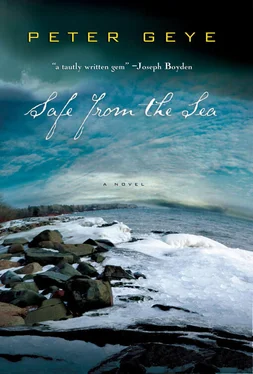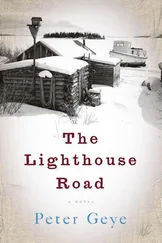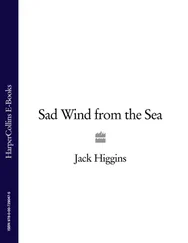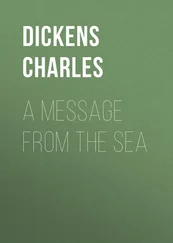Noah thought of the pictures in the museum. He thought of his father’s distant voice on the phone just yesterday. “He’s sick.”
“I know.” The strain in her voice lessened. “The timing is terrible, that’s all. It’s incredible.”
“You’re right about that,” he said.
Noah watched the rain strengthen, saw sheet lightning up over Minnesota Point. He knew that the root of her terseness lay in her overwhelming sadness, one that consumed her often. He feared that his coming here was unforgivable as far as she was concerned, but he also knew that when he’d told his father he was coming, he’d had about as much sway over his own words as he now had over the thunderstorm outside.
“Just call me again after you get there. It’s late and I have an early morning,” she finally said.
“I’ll call tomorrow.”
“I have an appointment with Dr. Baker tomorrow, in case you forgot.”
“I didn’t forget, Nat.”
A meaningful silence passed, as though both had more to say but neither could articulate their thoughts. Finally Noah said, “Good-night, then. I love you.”
Natalie said, “Good-night.”
Noah remained at the window. When finally the rain let up the light he’d been watching out on the lake came into focus. A freighter, her deck lights radiant with caution, lay at anchor. It was a fitting view for his faraway feelings.
NOAH THOUGHT OF the map of the north shore he had framed above his desk at home, a lithograph of the Minnesota arrowhead circa 1874. There were no roads then — either on the map or in reality — but the Lake Superior shore was dotted with towns, most of them now gone or renamed. Whenever he found himself sitting back in his desk chair, looking up at the map, he was reminded of passing along this shore as a child.
Highway 61 was as forlorn in those predawn hours as it had remained in his memory. The potholes and seasons-old frost heaves yet pocked the blacktop, the dilapidated wooden storefronts and signs warning of deer crossings and dangerous curves still marked the road-side, the countless rivers and streams rushed under the highway bridges as they had for ages. But the two deadliest curves — curves that had once pinned cars on sheer cliff tops — had been replaced with quarter-mile tunnels burrowed through the bedrock.
He had left Duluth an hour ago, sleep starved and anxious, and now was toying with the radio. A disc jockey from a station in Marquette announced the time, seven twenty-five, and an old country-music song. The first few chords of a steel guitar moaned before fading to static. He turned the radio off and settled into the hum of the tires on the pavement. Occasionally the road curved to the right and the trees dispersed and the brown rocks and the brown water of the lake came into view. The lake was unusually still, especially in contrast to his memories of it tonguing up onto the stone beaches. They were a child’s memory, though, the water all froth and fury.
Just clear of Taconite Harbor and the Two Islands he saw the sun rise over the water, remembering the adage about a red sky in morning. It was red — the sky over the lake — and lowering. It reminded him of the late-season gales that had been the curse of his mother, the curse of all the ore men’s wives. He never knew what to think about the storms but that they were spectacular. There was one stewing in the distance.
He passed the Temperance River and pulled the directions from his shirt pocket. His father had called just two days ago, his voice hoarse and whispery.
“Hello, boy,” he said, the heavy pause between words freighted with circumspection. Without waiting for Noah to respond, Olaf continued, “I may need a bit of help getting the place ready for winter.”
“Help?” Noah said. Help? he thought. He almost said, Who is this ?
“The woodpiles, some work around the house.”
“Why?”
His father took a deep and raspy breath. “I’m sick, Noah.”
It wasn’t what his father said as much as it was the fact of hearing him speak at all that alarmed Noah. The silence between them had become unconditional. Noah couldn’t have said whether the estrangement — from his point of view — had evolved into forgetting or forsaking, but when he said to his father, “I’ll come, I can leave tomorrow,” he was alarmed again, this time by his own impulse. “I’ll fly into Duluth. But I’m not sure I remember how to get to the cabin.” Now, approaching Misquah, he began to feel uneasy. He’d traveled this road a thousand times, but not since he was in high school.
The directions Olaf gave were those of a man who knew where he was and where he was going unconsciously: Up in Misquah you’ll see the Landing there — it’s got a red sign. You’ll recognize it. Past the Landing the county road goes into the hills. You’ll see a stand of firs burnt red from this summer — it was a warm summer — look for those trees. Twenty minutes into the hills you’ll come on Lake Forsone Road. There’s clover still flaming in the ditch on the right. When I first saw it, I thought it was a goddamn brushfire. Turn and follow the road around the lake. You’ll remember when you get here. Anyway, it’s simple now that I think about it: Just keep the red on the right, like the harbor buoys — red, right, returning.
Among the red markers his father had mentioned, only the gas station was plain to see. He spotted no stand of red-burnt firs, no flaming clover. The county road was tucked behind a rock outcropping at a bend on the highway. He’d been expecting gravel, but it was paved now. The trees his father had mentioned were barely distinct in the forest of millions. The burnt red his father had described was an almost indiscernible rouge they wore among their green, green boughs. The road ascended quickly and narrowed into the deep timber.
Ten minutes later it veered sharply to the left and in the middle of the curve, on the right, a dirt road tunneled into the trees. At the wooden marker Noah stopped to watch a whitetail deer and her fawn breakfasting on the tall grass. They were so lithe and alert. Noah moved ahead slowly, taking a last look out the passenger-side window. There in the grass he saw a patch of red clover.
Despite his father’s suggestion that it would all look familiar, Noah had no memory of where the house might be. He followed the road left, to the north, past the public access and over a culvert. The road continued to curve away from the lake, so it surprised him when he saw a mailbox, barely attached to a rotted post, with his father’s name faded to the edge of invisibility. He stopped again, opened the mailbox, and found mail postmarked as long as three weeks ago: supermarket flyers, real estate offerings, magazines, and a handful of envelopes from the Superior Steel Company. He took it all with him.
Noah turned onto the trail. Long grass grew between the tire tracks, and overgrown trees brushed the top of his car. For a quarter mile he crept toward the lake under the shade of the trees. Then the road widened and began to go downhill. Rain runoff channels a foot deep grooved the hill, and what little gravel remained on the trail was unpacked. After three sharp turns, the cabin appeared before him.
He parked beside the rusted Suburban that his father had bought the year Noah went to college. Noah’s Grandpa Torr had been a meticulous man and had kept the house shipshape. The woodpiles — like bunkers along two sides of the house and in the middle of the yard — had always been expertly stacked. His grandpa used to boast that they could withstand a tornado. He kept the trees trimmed, too, and the small lawn mowed. His Grandpa Torr’s fastidiousness was redoubled in Noah’s own father, so the disrepair of the house shocked Noah. The rough-sawn cedar siding had taken on a green-gray hue, and the grainy, knotted siding had been weathered smooth. The roof bowed and had bunches of moss and spry grass growing between the shingles. Either his father had become a different man or he’d not been well enough to maintain the place for years.
Читать дальше












